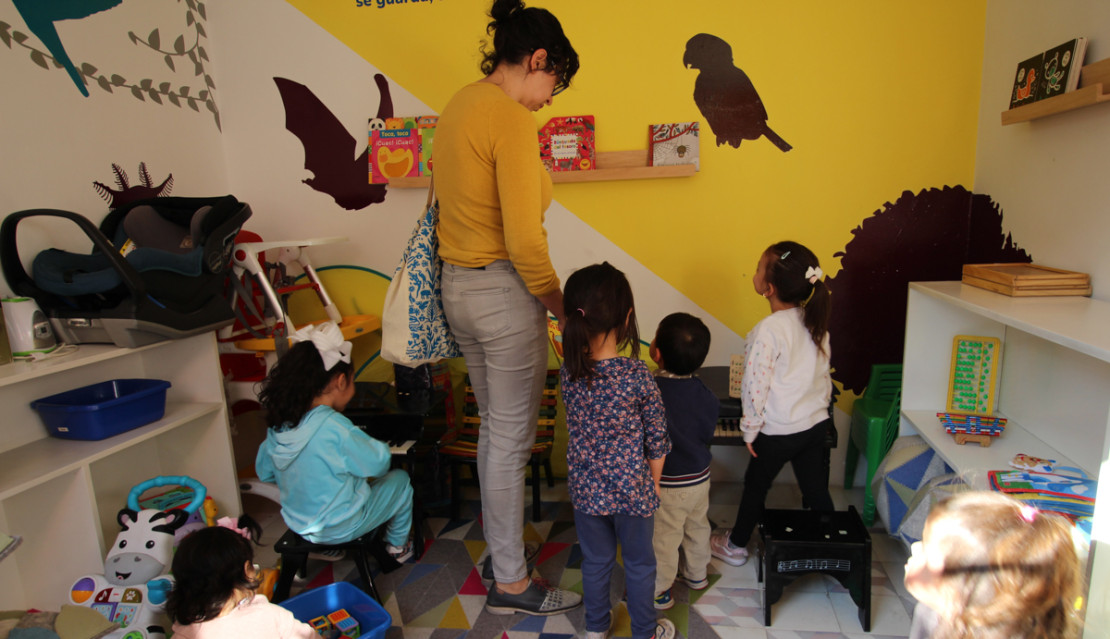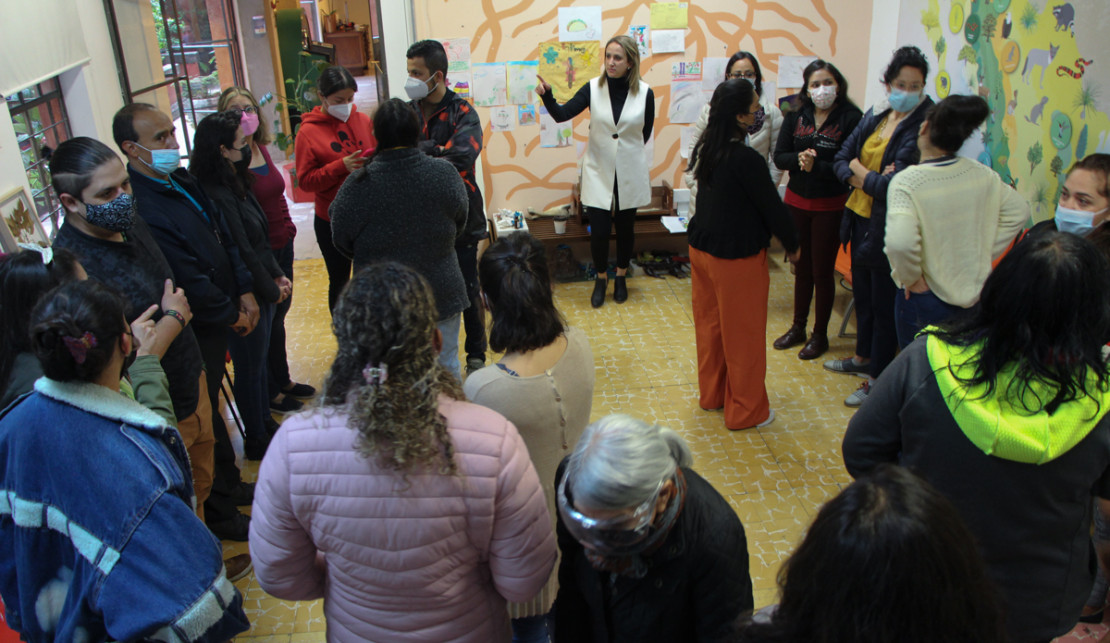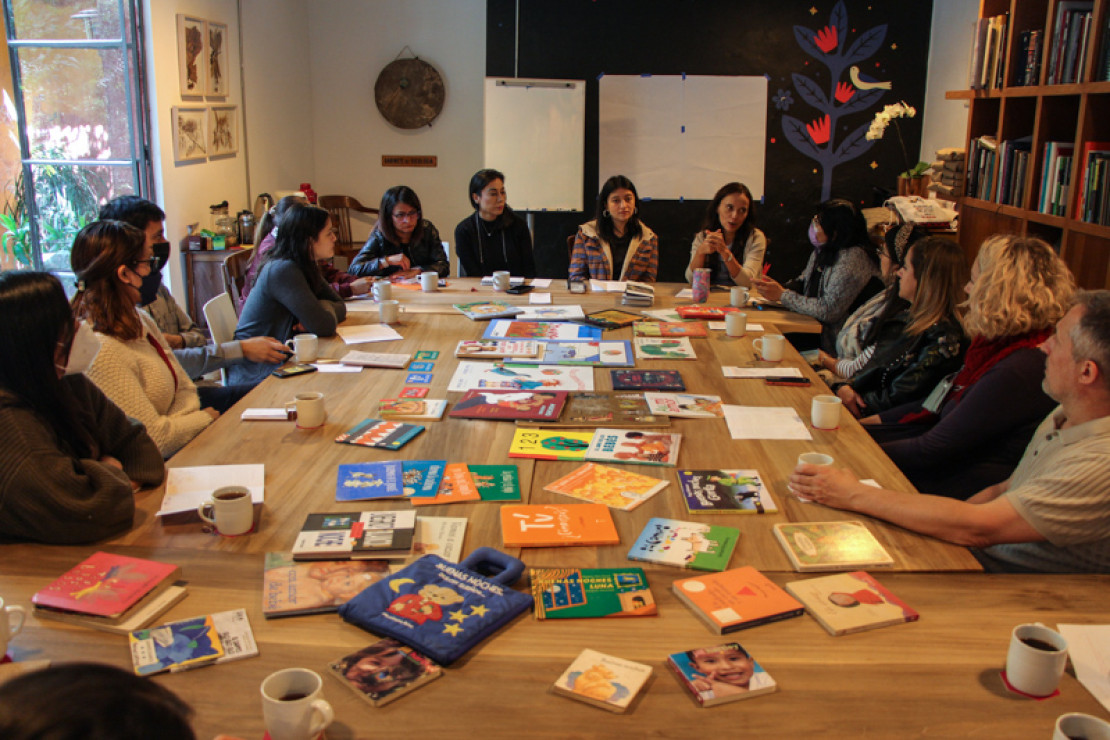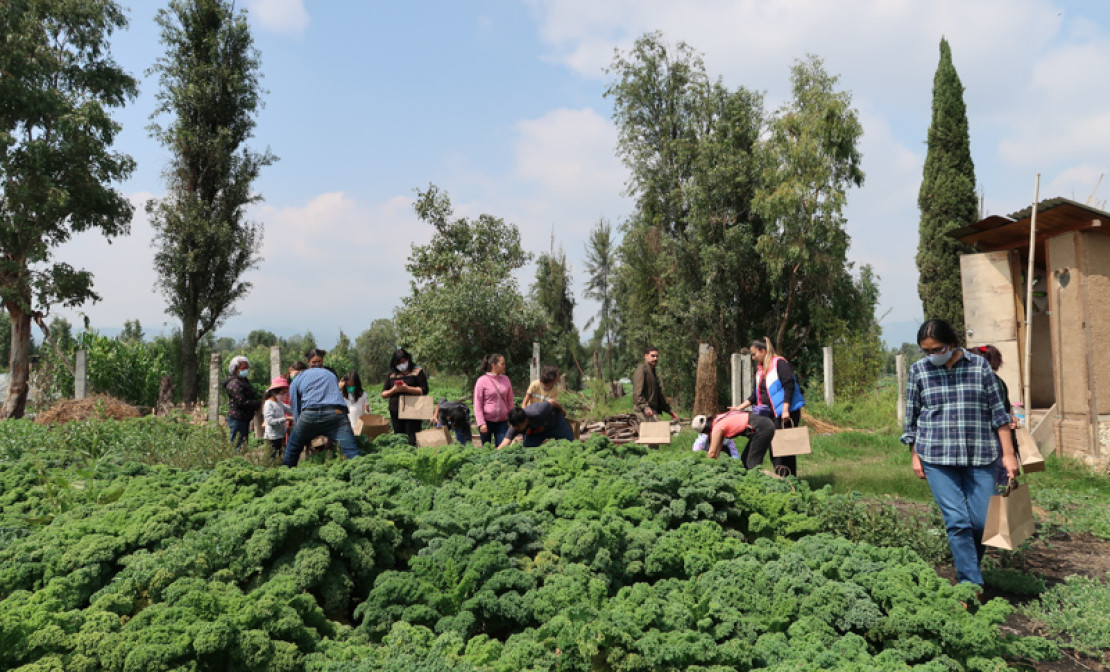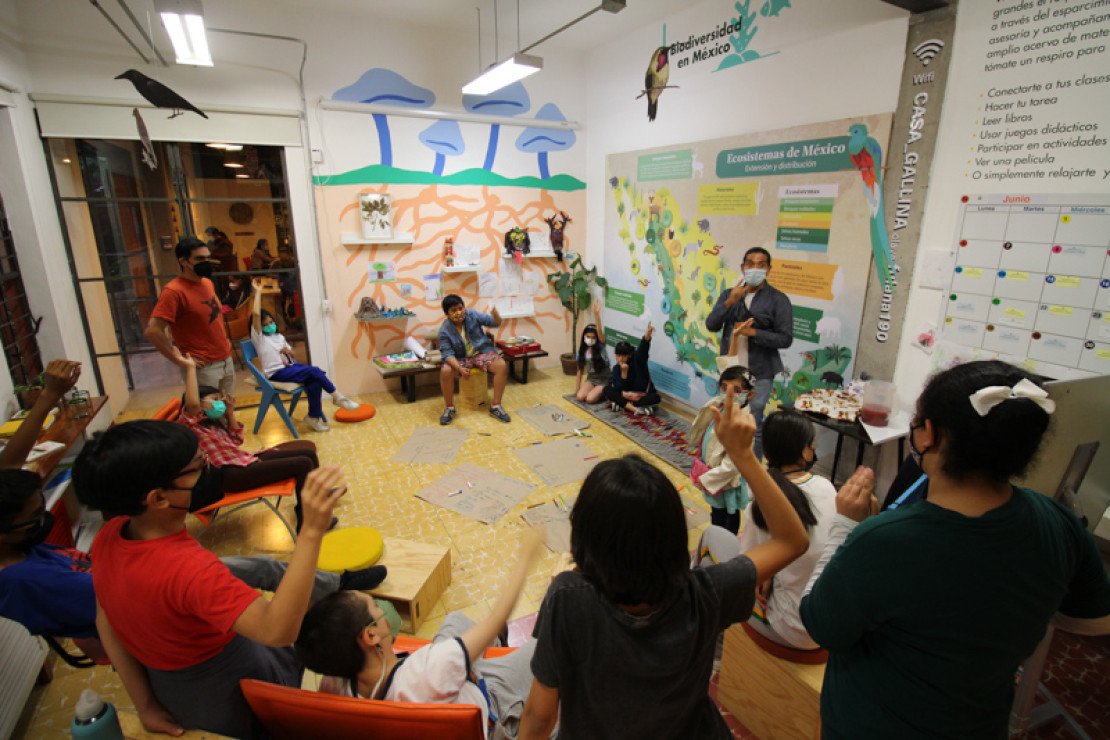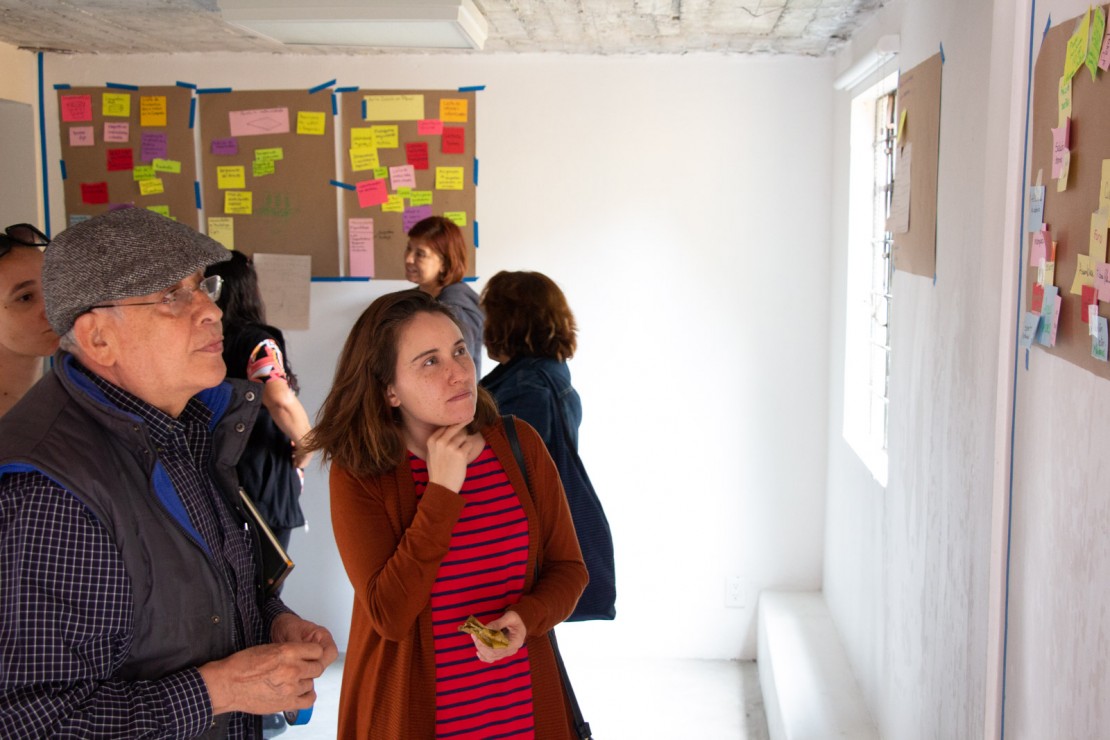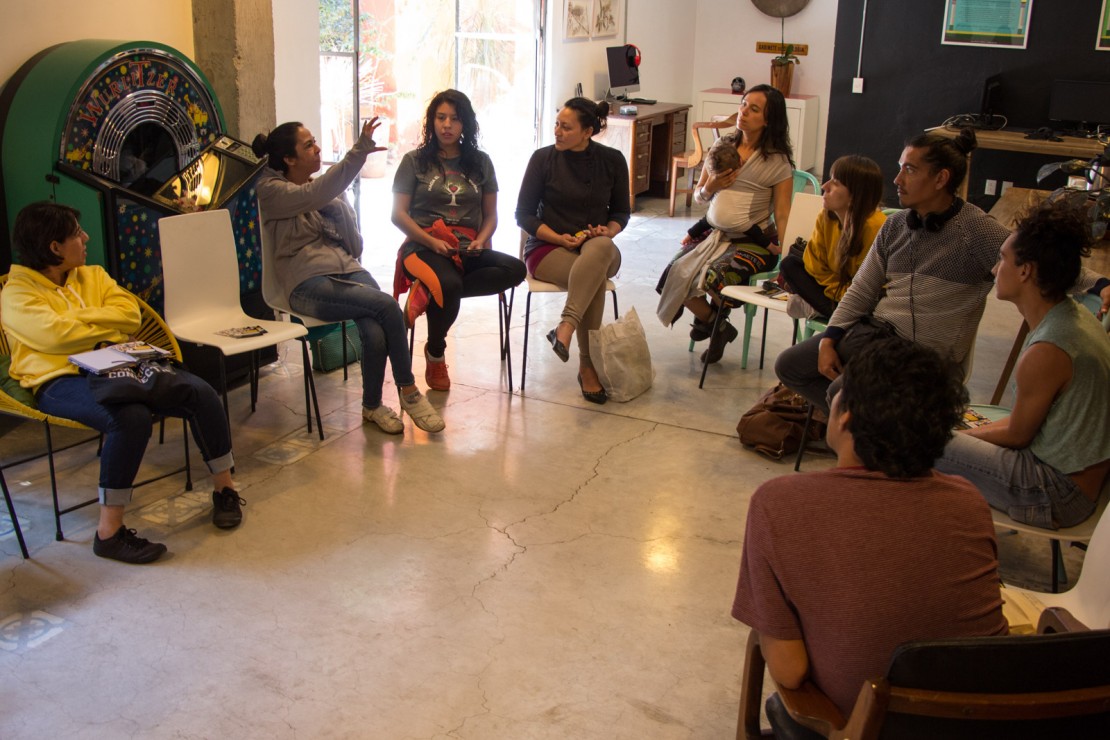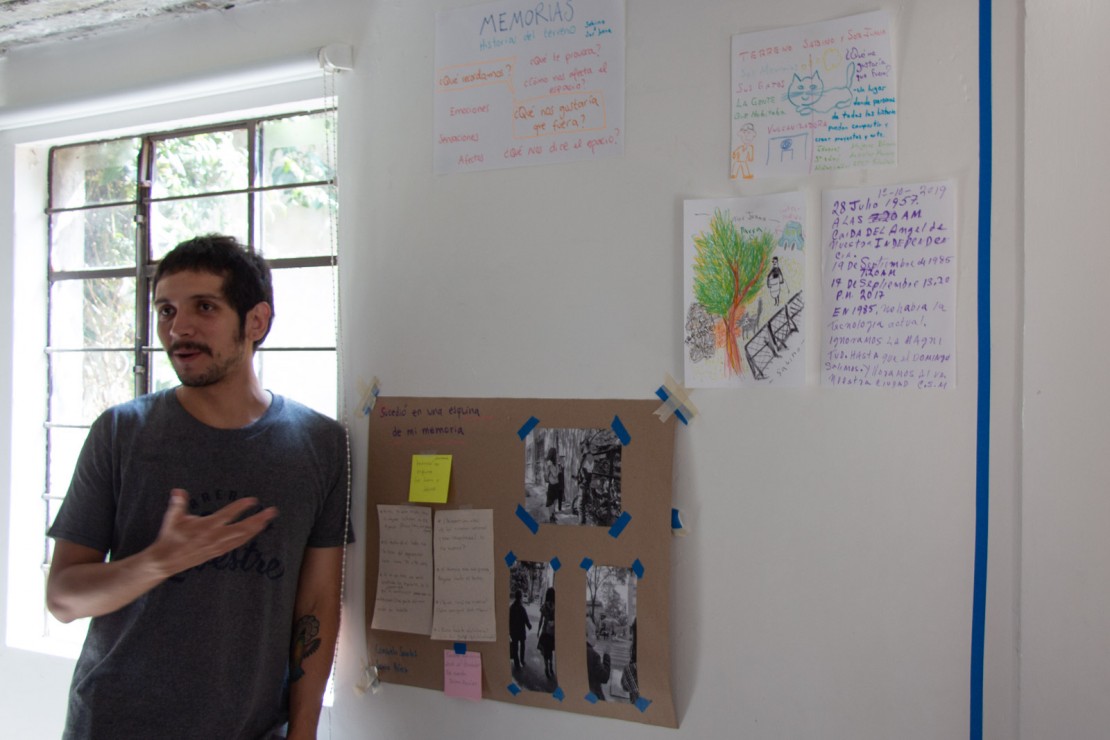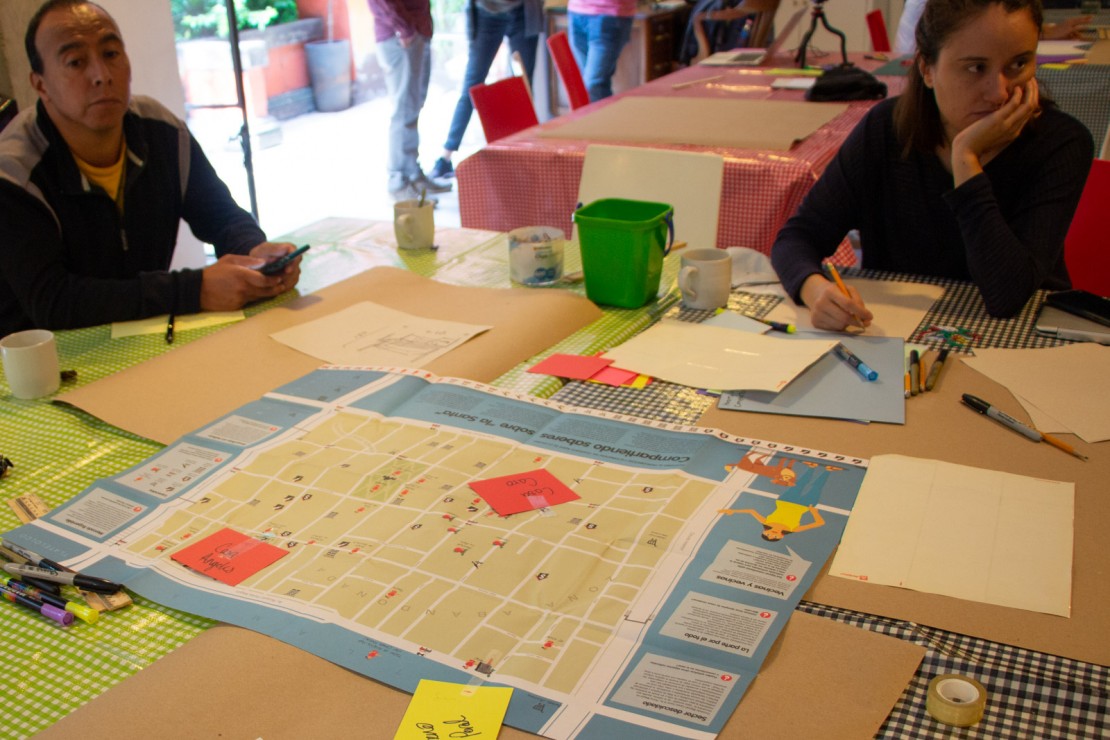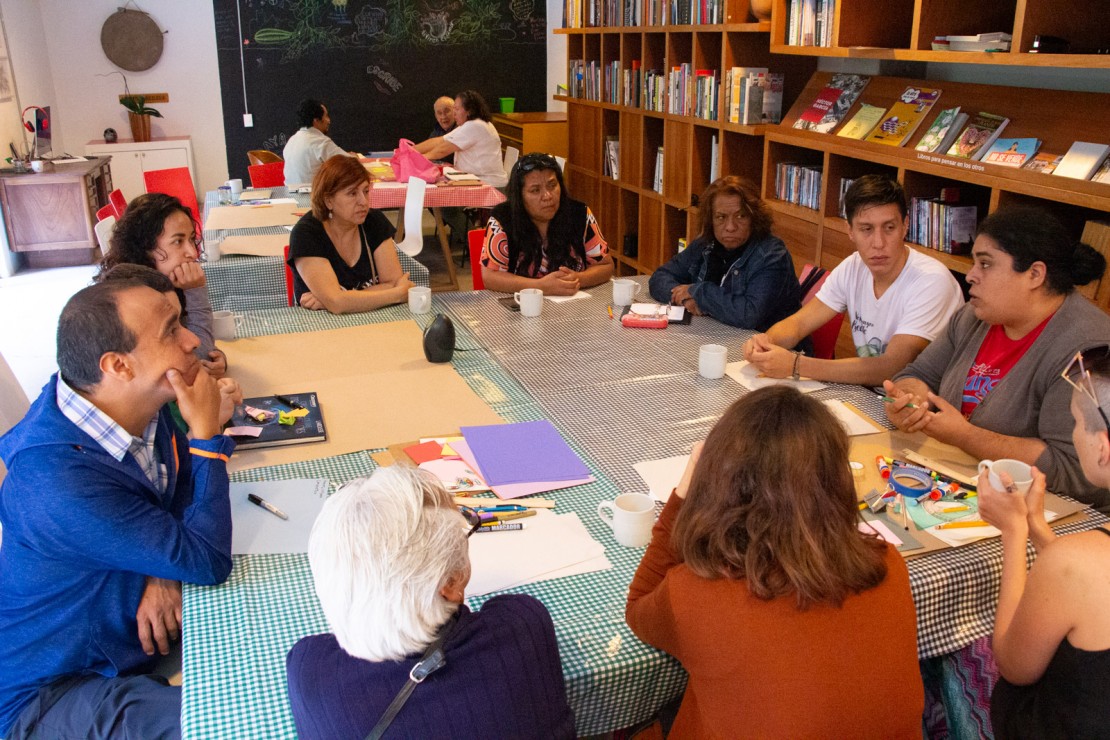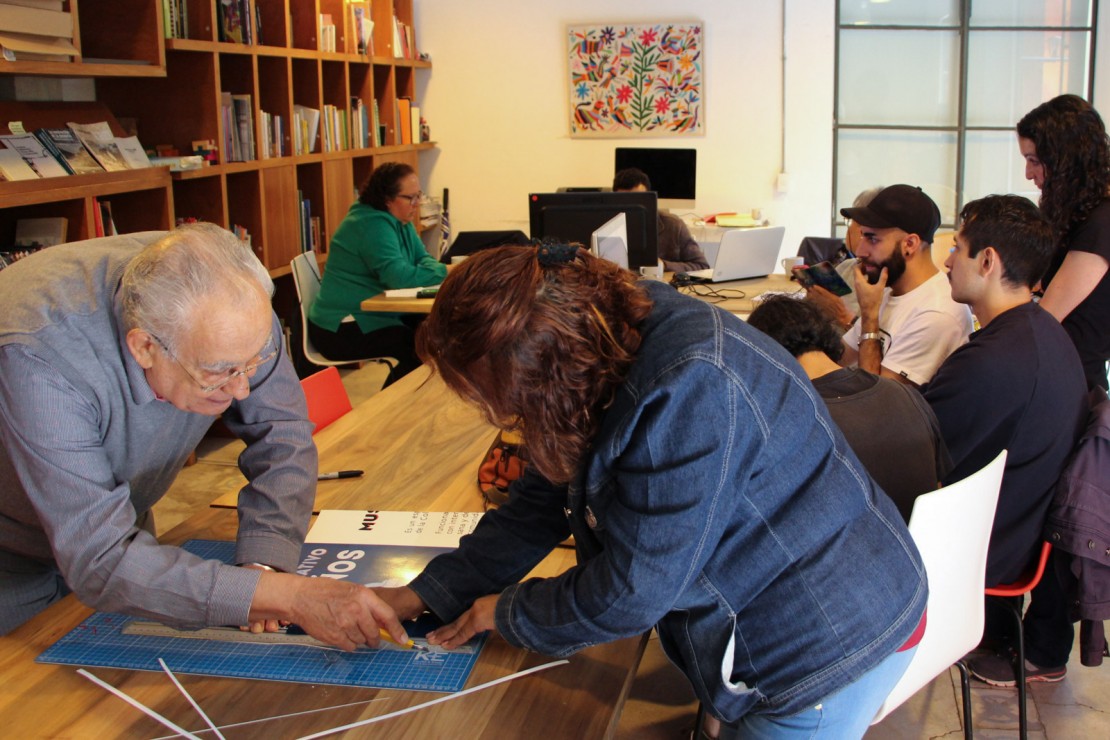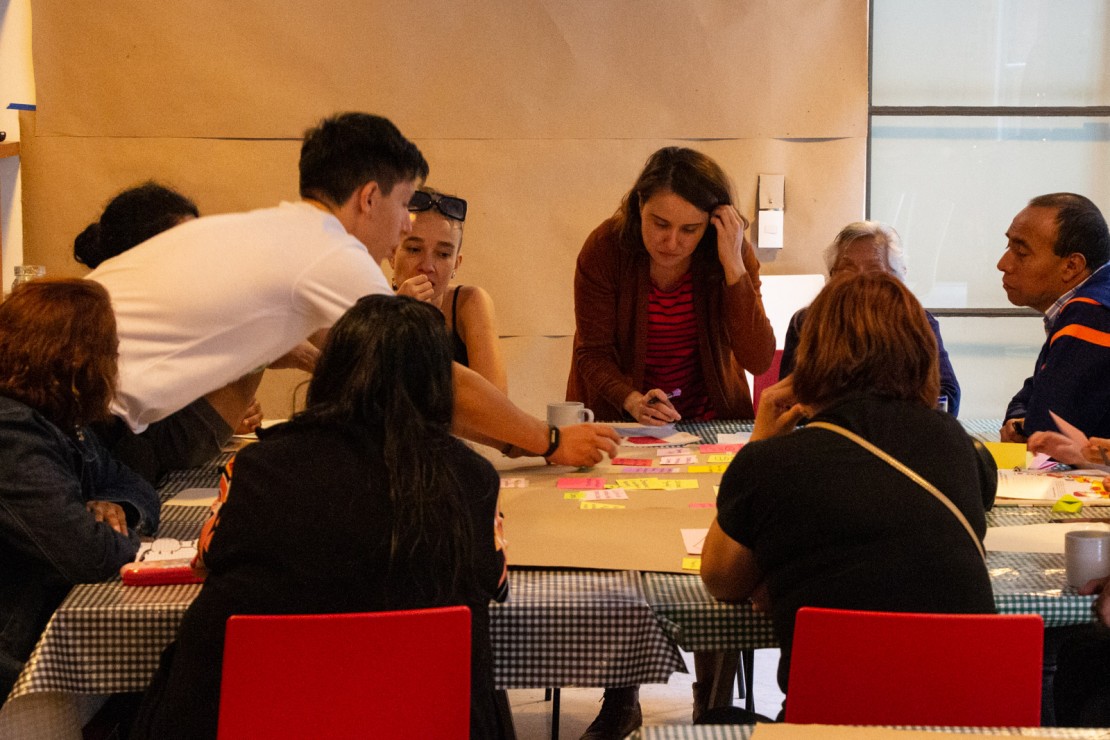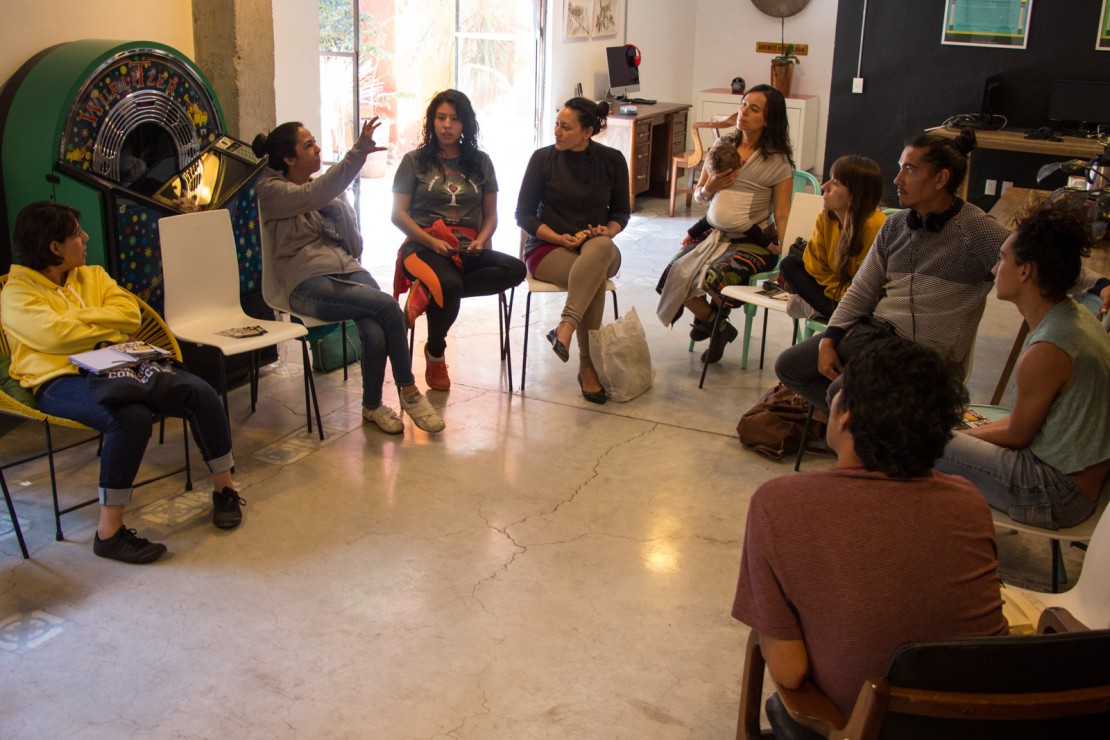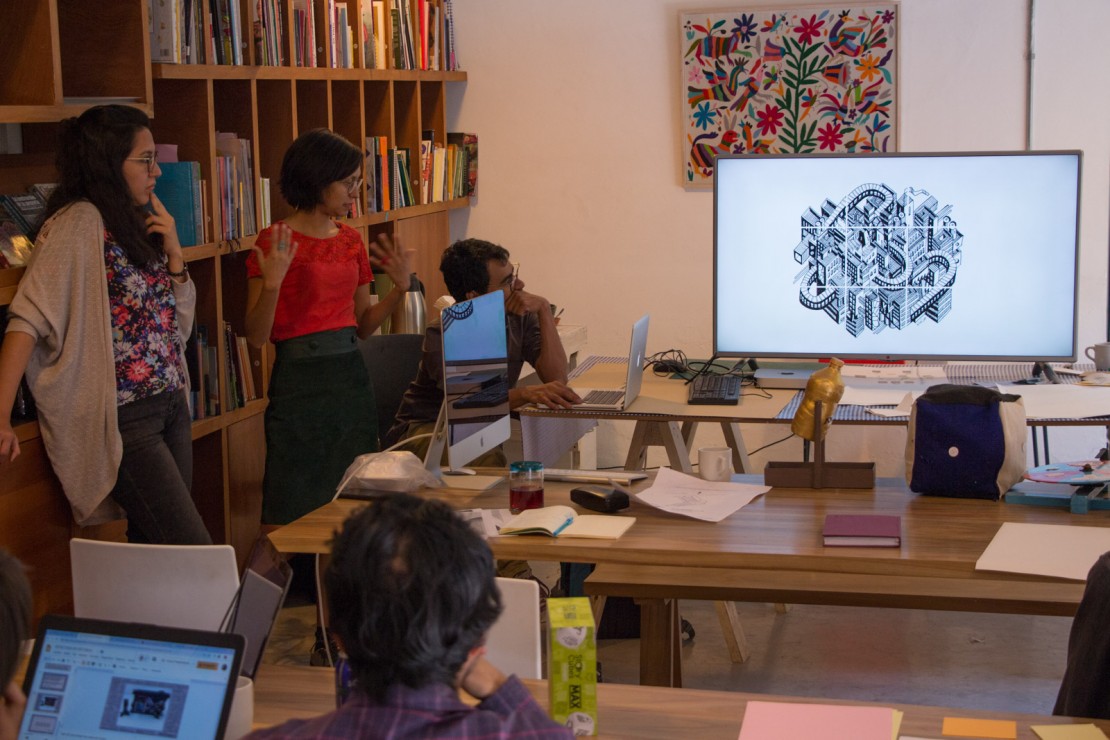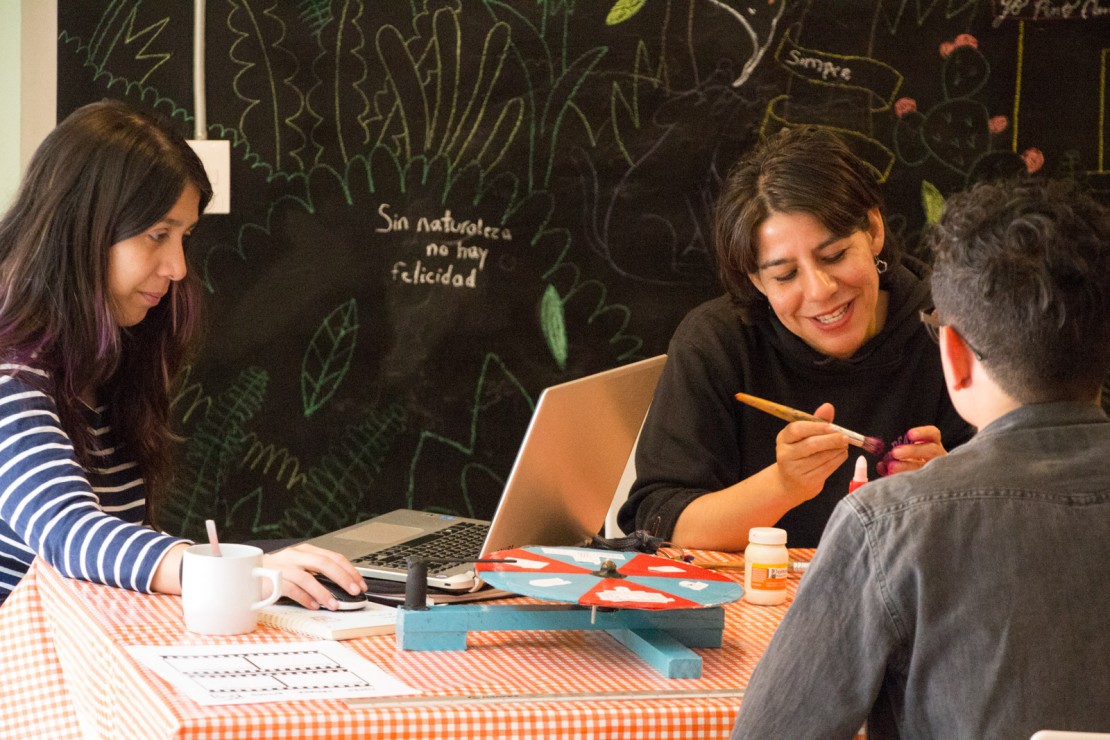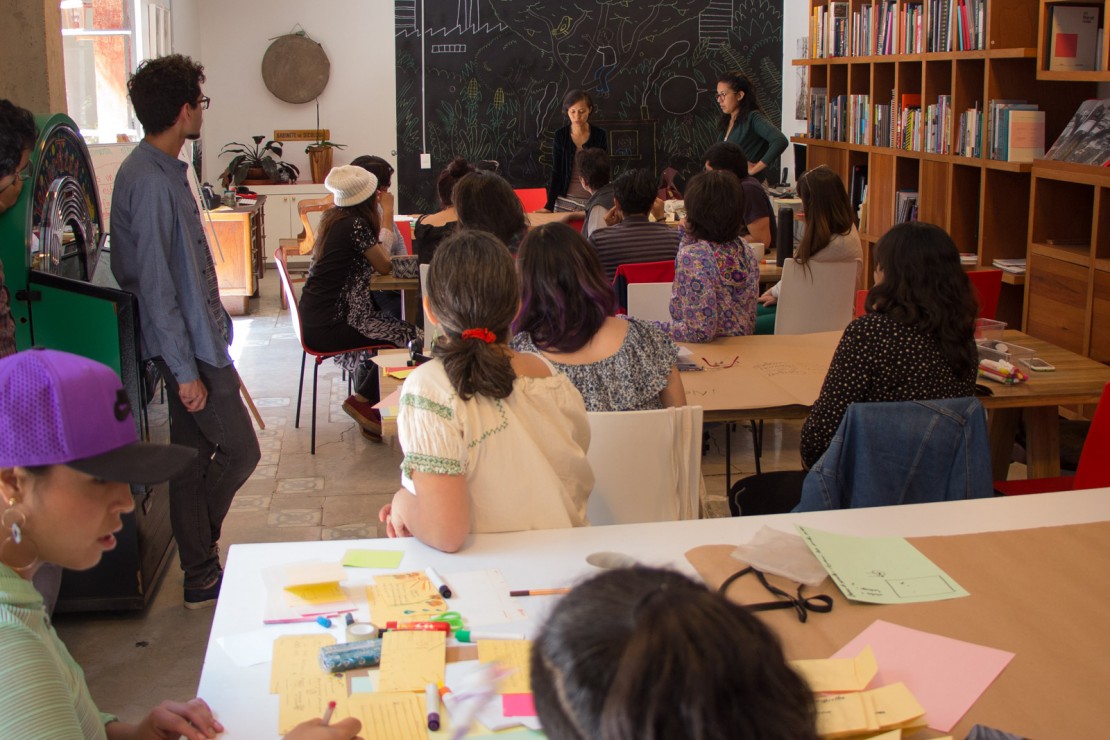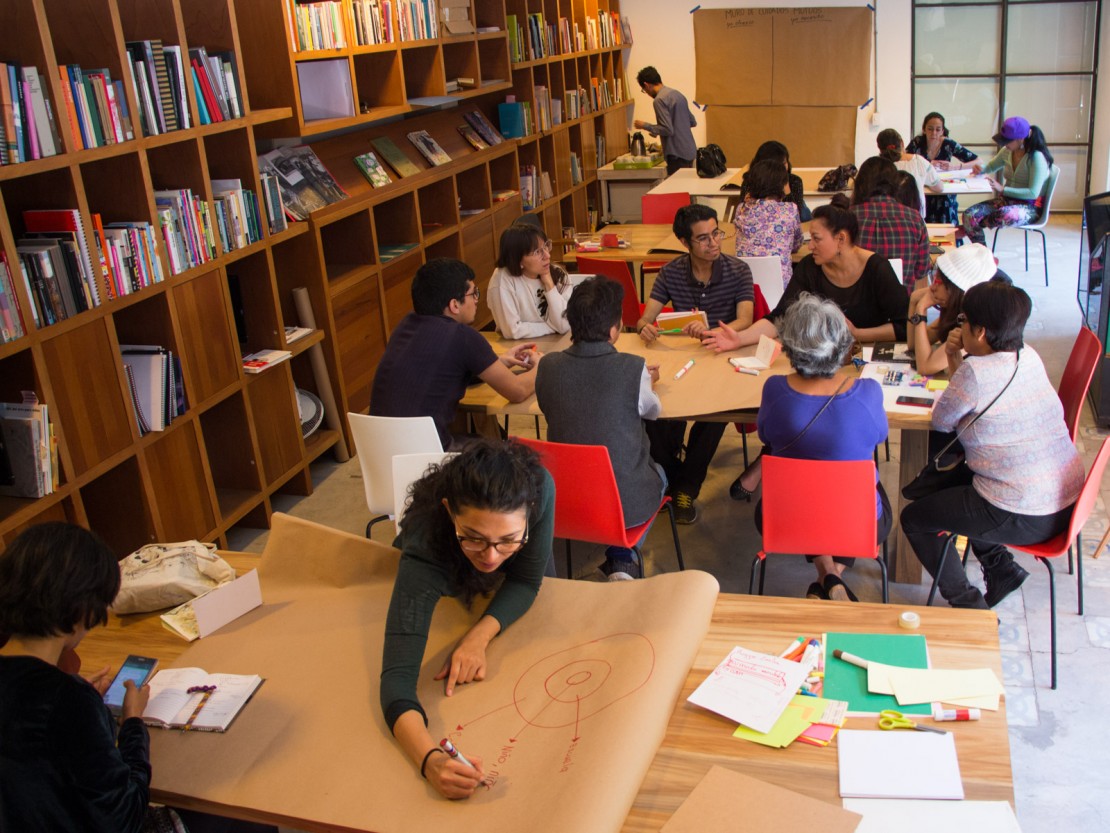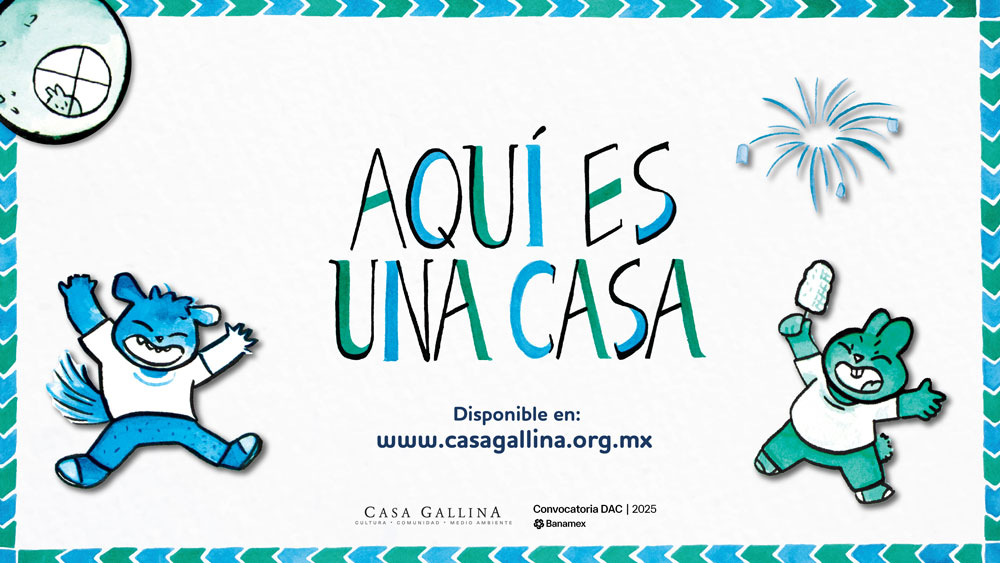Harnessing Social Energy: Labs, Prototypes and Neighborhood Projects
The labs bring people together around a common cause, connecting promoters of ideas with collaborators who share the same concerns, but who have different know-how, experience and types of intelligence. It also provides locals with the specific knowledge they lack by inviting mentors who put their expertise to the service, not just of the upper echelons of the group and their projects, but for the community as a whole. The result is a living classroom based on problem solving, where just as much value is placed on the process as the final outcome. Participants are encouraged to focus their energy on interacting with people from very different backgrounds, tolerating their differences and learning as a group. Based on an economy whose currency is mutual trust and respect, participants are invited to come up with viable, negotiated solutions that can be Dates: April – September implemented in their community. The goal of these labs is to produce objects and subjects that are active in their personal space and the community, and that are capable of progressing in an atmosphere of cooperation, solidarity and tolerance that puts the common good above the individual. Harnessing Social Energy: Labs, Prototypes and Neighborhood Projects Started on January as a permanent strategy 43 neighbors attended in 2 programs This platform provides neighbors with a safe, mediated space with basic infrastructure where they can devise and experiment with solutions to the everyday problems of their community. The labs bring people together around a common cause, connecting promoters of ideas with collaborators who share the same concerns, but who have different know-how, experience and types of intelligence. It also provides locals with the specific knowledge they lack by inviting mentors who put their expertise to the service, not just of the upper echelons of the group and their projects, but for the community as a whole. The result is a living classroom based on problem solving, where just as much value is placed on the process as the final outcome. Participants are encouraged to focus their energy on interacting with people from very different backgrounds, tolerating their differences and learning as a group. Based on an economy whose currency is mutual trust and respect, participants are invited to come up with viable, negotiated solutions that can be implemented in their community. The goal of these labs is to produce objects and subjects that are active in their personal space and the community, and that are capable of progressing in an atmosphere of cooperation, solidarity and tolerance that puts the common good above the individual.
Orchard Day
Date - On Saturdays, a permanent activity.
Facilitators - Fabiola Gallardo and Cecilia Pompa
Participants - a constant group of 10 neighbors, every Saturday
The Casa Gallina orchard is a space for constant care and encounters that is activated on Saturdays thanks to a group of volunteers from the neighborhood. The main objective is to explore urban agroecology through the exchange of knowledge surrounding work with various seeds, their viability and usage according to the season; composting, watering, association, handling of pests, nutrients for the soil, and other maintenance tasks. The activity does not require prior registrations, only the commitment to be there between the hours
Stories and Flavors We Inhabit - Participative Design
Date - April 5, 2025
Facilitators - Miguel Iwadare, David Hernandez and Fernanda Marquez
Participants - 10 neighbors, authors of the book Stories and Flavors We Inhabit
The participating publication’s authors gathered to delve into their concerns and interests surrounding nutrition in the neighborhood. For this event they brain-stormed ideas that could form a public program for the community, which contemplated mid-term actions to keep promoting reflection on nutrition, affections, culture, migration and food security. The outline proposal was retaken as part of Casa Gallina’s programming during 2025.
of 10 a.m. and 1 p.m.
Presentation of Breaths, in the Aztlan Children’s Book Fair
Date - March 15, 2025
Facilitators - Carola Diez, Martha Elena Garay and Vanya Pereyra
Allies - Formar Lectores
Participants - 10 assistants to the fair
This activity launched a conversation about forming the group of promoters of reading in the neighborhood for this project, the activities they created as well as the group organisation methodology they designed and the tools they implemented to put reading mediation into practice. There was a question and answer session at the end with three representatives of the wider group of authors, who shared their personal experiences.
Stories and Flavors We Inhabit - Book Presentation
Date - January 25, 2025
Coordinator - Miguel Iwadare, Balbina Perez and Casa Gallina educational staff
Participants - 24 neighbors
We celebrated the arrival of the book Stories and Flavors We Inhabit, a publication that was created collectively by 15 neighbors who have participated in different community kitchen programs. In their pages they share recipes and reflections that explore the multiple dimensions of the act of feeding oneself in the neighborhood: migration, memory, identity, the origin of the ingredients and food security, among others.
The presentation was a space for encounters, with the participation of the authors and their families. They shared their impressions of the process and the lessons learned, and offered food prepared especially for the occasion. Casa Gallina’s coordination and educational teams were present and facilitated this moment of celebration and collective acknowledgement.
Collection of Residues by the Council For Children
Dates: October and November, 2024
Workshop Leader: Yosdi Martínez
Participants: 15 girls and boys, 16 adults form Santa María la Ribera
The Council For Children joined the collective fundraising campaign for Casa Gallina’s 10th anniversary. Through the experience they gained walking through the neighborhood, the Council decided to collect solid waste materials in their homes and take them to a recycling plant, where they would obtain funds with which to make a donation. The girls and boys epitomize how collective actions can create community support networks.
Santa María la Ribera’s Children’s Council
Date: First generation: April to September 2024. Second generation: February to April, 2025
Worshop leader: Yosdi Martínez
Participants: 37 boys and girls from Santa Maria la Ribera and their tutors
The Santa Maria la Ribera’s Children’s Council is a continuous program of working session with boys and girls aged between 5 and 13 to create a space for children’s participation. This work group has focused its energy on performing neighborhood diagnostics, establishing a network of local businesses allied to protect children, creating reports on the neighborhood’s safety as well as strengthening their voice as agents of decision and change in the place they dwell. This project´s continuity objective is to reach autonomy in safe mobility and selfcare among boys and girls.
Workshop: Participative Games - Footloose Safe Path
Date: February 15, 20, 22 and 27, 2024
Coordinated by: Casa Gallina
Facilitated by: Yosdi Martínez
Participants: 24 girls and boys from Santa Maria la Ribera
Format: in person
During this workshop, participants explored their neighborhood’s streets to detect special places, find safe paths, interview inhabitants and gather memories. The aim was to empower them to go around autonomously and express their right to the city.
Stories and Flavors we Inhabit – The Road to a Neighbors’ Editorial Project
Dates: November 18, 2023
Coordinated by: Miguel Iwadare
Mediators: Mirelle Valero, David Hernández and Christian Rojas
Participants: 12 inhabitants of Santa Maria la Ribera
Format: in-person
Following encounters between neighbors in 2023, we launched an open invitation to inhabitants to create a narrative body of work that would make a joint editorial project by Casa Gallina and Miguel Iwadare viable; the project’s purpose is to delve into their concerns about the eating culture in Santa Maria la Ribera, their experiences and personal knowledge about diet and its visible varied dimensions in our community. During this encounter the neighbors themselves established a road map to harmonize they’re and the Casa Gallina team’s necessary steps for texts and field work.
Infant Products Lending Service
Date: permanent
Allies: Tribu Santa María Laboratories
Participants: 180 inhabitants of Santa Maria la Ribera (October 2022 to December 2023)
Format: in-person
The Infant Products Lending Service is a collection of objects for infant care and development, such as strollers, bicycles and early stimulation games, among others, available for loan to neighbors of Santa María la Ribera free of charge. It has consolidated as a place for exchange and free play among the girls and boys, as well as the mothers and fathers who attend. The collection has mainly been built from donated objects and opens regularly at fortnightly intervals.
Communal Rearing
Date: September to November, 2022
Coordinated by: Casa Gallina,
Allies: Tribu Santa María la Ribera
Facilitated by: María Nava, Patricia Covarrubias Fernández, Graciela Hess Carrillo, Martha Garay and Marion Fürnsinn.
Participants: 70 inhabitants of Santa María la Ribera
Format: in-person
A series of workshops that seek to promote learning strategies and mutual support among “primary caregivers”: mothers, fathers and teachers, among others. Six sessions were held on topícs such as: first aid for infants, positive child rearing, ludic learning strategies, raising awareness on the importance of self-care and breastfeeding. Finally, certain participants gathered to ponder the content of the educational programing that will provide continuity to this experience.
Presentation: Communal Child-rearing Project by Tribu Santa María
Date: July 30, 2022
Coordinated by: Casa Gallina
Ally: Tribu Santa María
Participants: 28 inhabitants of Santa María la Ribera
Format: in-person
Tribu Santa María consists of a group of women who, faced with the pandemic, got together to help each other care for their babies and themselves. They developed a project proposal on child-rearing, in collaboration with Casa Gallina, that includes a service to borrow and exchange baby items, as well as educational activities and gatherings. To implement it, a session was organized to present the project so participants could give their feedback and thus anchor it to the immediate locality.
Productive Chinampa: El Buen Campo
Date: June 18, 2022
Ally: El Buen Campo
Led by: Julio Mora
Participants: 19 girls, boys and parents from Santa María la Ribera
Format: in-person
El Buen Campo is a small business created by a pair of neighbors from Santa María la Ribera, that is devoted to safeguarding ancestral ways of planting in Xochimilco, through growing and selling vegetables. On Saturday June 18, Julio Mora offered a guided tour to girls and boys who were members of Casa Gallina’s Children's Council, for them to learn the process of planting on chinampas, along with their historical and social background.
First Meeting of Casa Gallina’s Children's Council
Date: June 9, 2022
Participants: 13 girls and boys from Santa María la Ribera
Format: in-person
During this session, boys and girls who frequent Casa Gallina’s activities and had been invited to form a Children's Council exchanged ideas on their concerns and interests regarding the community and themselves. They shared what they would like their neighborhood to be like and how they could achieve this. The aim in creating this Council is to provide a space where girls and boys can express themselves and decide on Casa Gallina’s programming for children.
Our School is also our Neighborhood: Prototype Laboratory
Dates: February – March
Coordinator: José Guerrero and the Casa Gallina team
Participants: 25 neighbors of Santa María la Ribera
This activity focused on an open call for members of the neighborhood community to design educational activities and/or infrastructure projects to run parallel to the classes taught at basic level in public schools. The call was open to anyone who had any idea with the potential to become a project or program to support teachers.
The program allowed four of the ideas proposed by the participants to become projects to be implemented in school clubs. Those who participated in this laboratory are in a process of articulation with school authorities and adjustments with teachers to attach their initiatives to the clubs within the curricular autonomy program in the 2019–2020 school cycle.
Creating Community: Brownfield Projects Lab
Dates: August – October
Facilitators: David Gómez, Valentina Sánchez, Montserrat Nuñez and David Hernández
Participants: 18 neighbors
This working laboratory called upon neighbors to propose projects to be implemented on communal land. The participants of these laboratories presented three open ideas for a couple of properties. The first one, on Peral Street, saw a disused surveillance booth adopted and activated by residents of the northern area of the neighborhood after negotiating with district authorities. The second, an abandoned property on the intersection of Sor Juana Street with Sabino Street, has been the long-time target of a group of several neighbors who wish present initiatives to adopt the property as a communal space.
